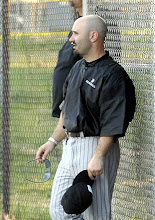I just read a post from the following site.
http://historytech.wordpress.com/2009/10/12/dont-do-vs-do-do/
The post deals with whether to block possible distractions from students accessing computers in the classroom. Technology is increasing more and more in the classroom, however the schools and counties are controlling the browsers from students. In the post it is mentioned that blocks should not be put up on computers. Some technology groups feel this is not a computer issue, but a behavior issue. And if you block areas from students they will work even harder to get around the blocks, because they are told no. One thought is to instead treat students the same ways as when paper and pencil were introduced.
When students learned to use paper/pencil, they 1st learned to hold the pencil. Students then learned to write in cursive, and how to put a proper heading on their paper. In this post the tech people feel this is an accurate comparison to dealing with proper use of how to handle computers.
I have a hard time seeing the comparison. I feel like we are talking apples and oranges. So, if we teach students how to use computers the right way, then we are not responsible for inapropriate computer use?
Sunday, November 8, 2009
Subscribe to:
Post Comments (Atom)




Filters are necessary to protect both students and teachers. Obviously there is content(for legal reasons)that must be blocked in the schools. Beyond the obvious, the question then becomes how do we decide what to filter?
ReplyDeleteThere might be a math gaming site that one teacher finds a distraction to her students and requests to block. Another math teacher might see this same site and think that is an excellent, motivating site to engage students to learn in a fun way. We don't want to say that site has games that could be misused so block all game sites. Instead we want to teach kids that learning can be fun and we can use "fun" web sites so long as they are used for instruction and in an appropriate way (just like we would teach them any other life skill.)
I appreciate the link back to my post on filtering software! I do want to make a clarification about the paper and pencil comparison because it's clear after re-reading my post, that I didn't do a good enough job of saying what I was thinking.
ReplyDeleteThe idea of the paper/pencil example was to make a point that paper and pencils were/are tools that we expect students to use correctly. And because we expect students to use these tools correctly, we have to TRAIN them to use them correctly. There are some basic steps that are used as part of this training.
I think the same holds true for online and technology tools. These are things that we expect students to use correctly. The problem is that by filtering and blocking access to many of these tools, we can not train students to use the tools in appropiate ways. When kids then go home, they use these tools inccorectly.
We need to create/use a scope and sequence of how online tools should be used and train our kids correctly. This then addresses your last question.
If we do train our kids appropriate behavior, then we can and should expect that behavior. If we don't see that kind of behavior, then we can and should provide consequences.
Hope this helps clarify what I was trying to say! Come back often.
glennw
historytech.wordpress.com